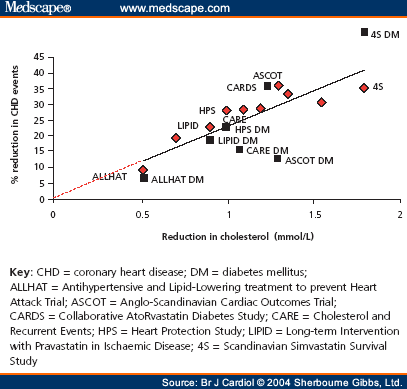Hi all. I've really been making an attempt to get back into A+ health, so I got an endo toward the end of last year. I think he is very good, and he also happens to be Type 1, which only helps.
Now that we have had 2 rounds of blood work, he wants me to go on a statin (e.g., Lipitor). I am not much for pharmaceuticals, but I will do what is necessary (he also prescribed an ACE inhibitor, which I -am- going to take).
I know that there is much debate about the old ratio/Framingham Study way of doing things vs whole number/Cleveland Clinic Study methods of analyzing one's cholesterol, but it just seems like he is being hasty here. I know most of the people he sees are 65+ and probably belong on a statin along with whatever else they are taking. I most definitely wish no offense to those who are older, but I feel like this might be his default suggestion for everyone coming into the office (how many people actually have LDL below 100? naturally?). I am curious on the opinions of some of you as I am relatively new to the cholesterol game. Here are my numbers (which I am definitely still improving):
NOVEMBER 2011:
Total cholesterol: 241
HDL: 72
LDL: 154
Triclycerides: 76
Chol/HDL ratio: 3.3
A1C: 7.2 (yes, I know this sucks)
APRIL 2012:
Total cholesterol: 233
HDL: 71
LDL: 143
Triglycerides: 96
Chol/HDL radio: 3.3
A1C: 7.2 (yes, again, it sucks))
Between the two tests, I lost 5 lbs., and I have another 25 to lose over the next 9 months or so. I know there are many elements to cholesterol that are simply out of our control, but I want to at least work on the ones I -can- control such as some elements of diet, my overall weight/percent body fat, and my blood glucose control. My actual LDL number (what my doctor believes in examining more closely than the ratios), has improved, and I am hoping it continues to do so.
He wants it under 100, which seems almost an absurd demand. He brags that his is 70 (through statins), something in which I see little benefit. Also, I've read that some elements of the Cleveland Study do not explain everything, and a big thing nowadays is to do an LDL density pattern test because not all LDL is bad (Type A vs. Type B).
Okay, sorry if I wandered around a bit; I am just curious on the opinions of all of you who may be in similar situations if you think my doc is correct and I should just shut up and take the pills, or if maybe I should push for additional testing (all while losing weight and eating correctly of course). Thanks!

